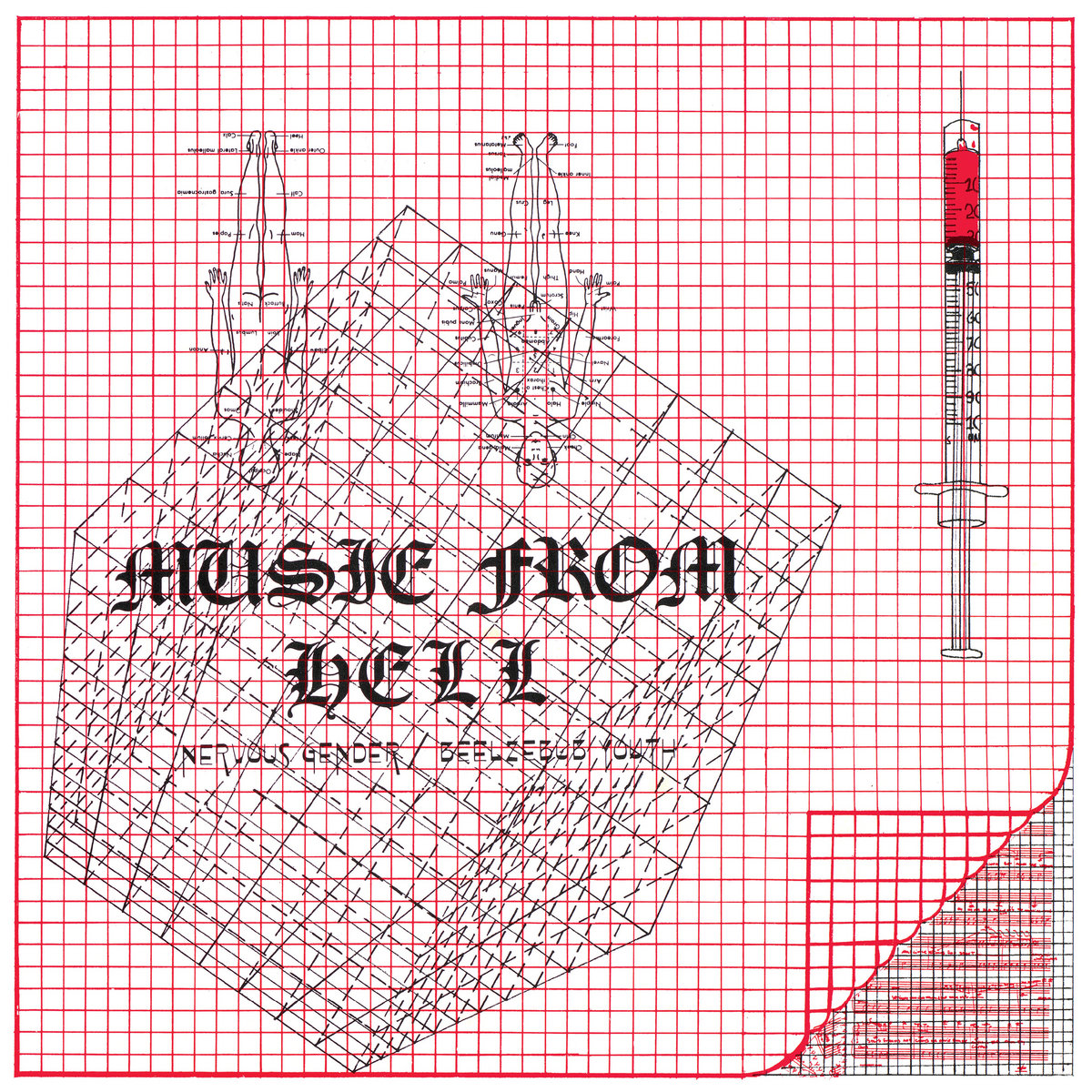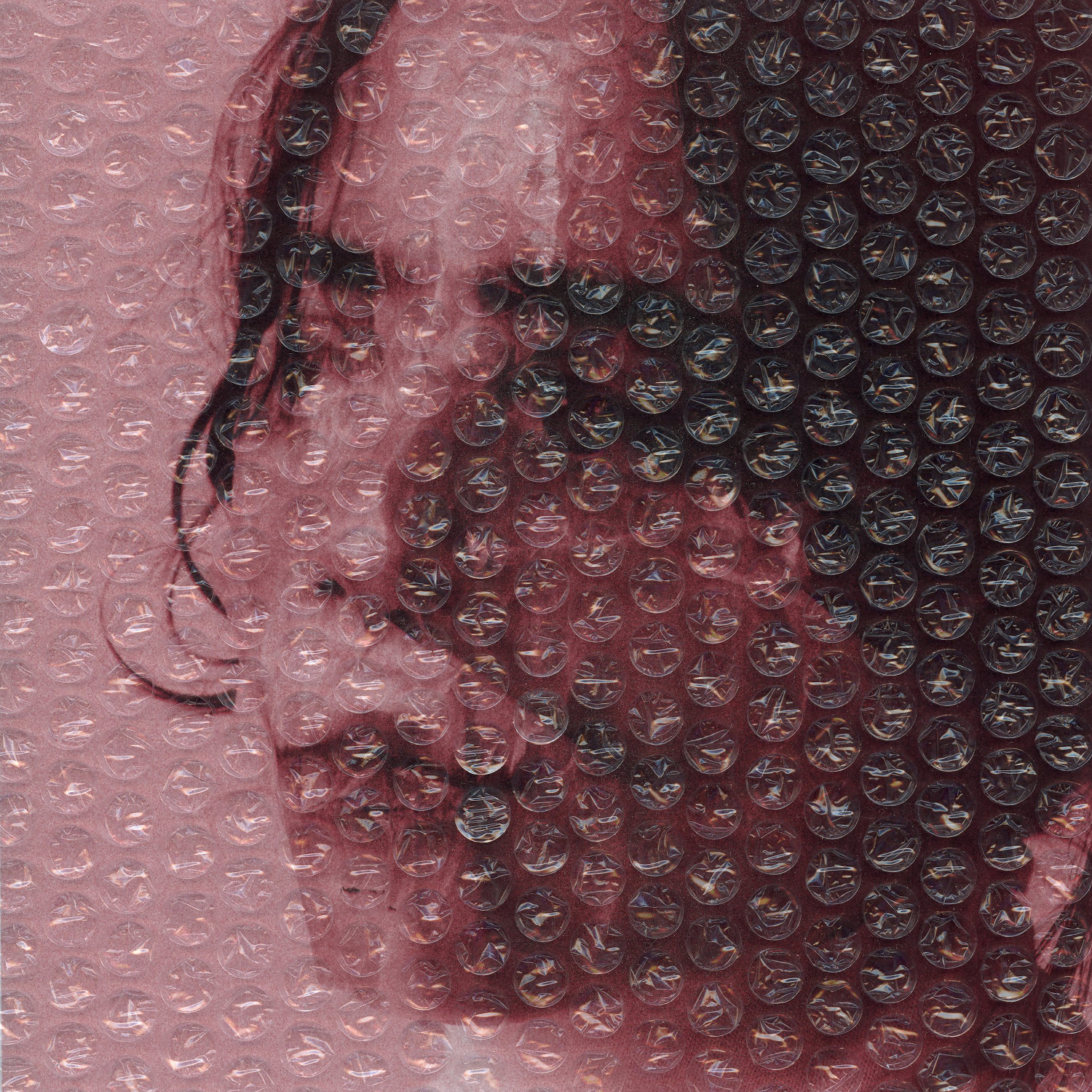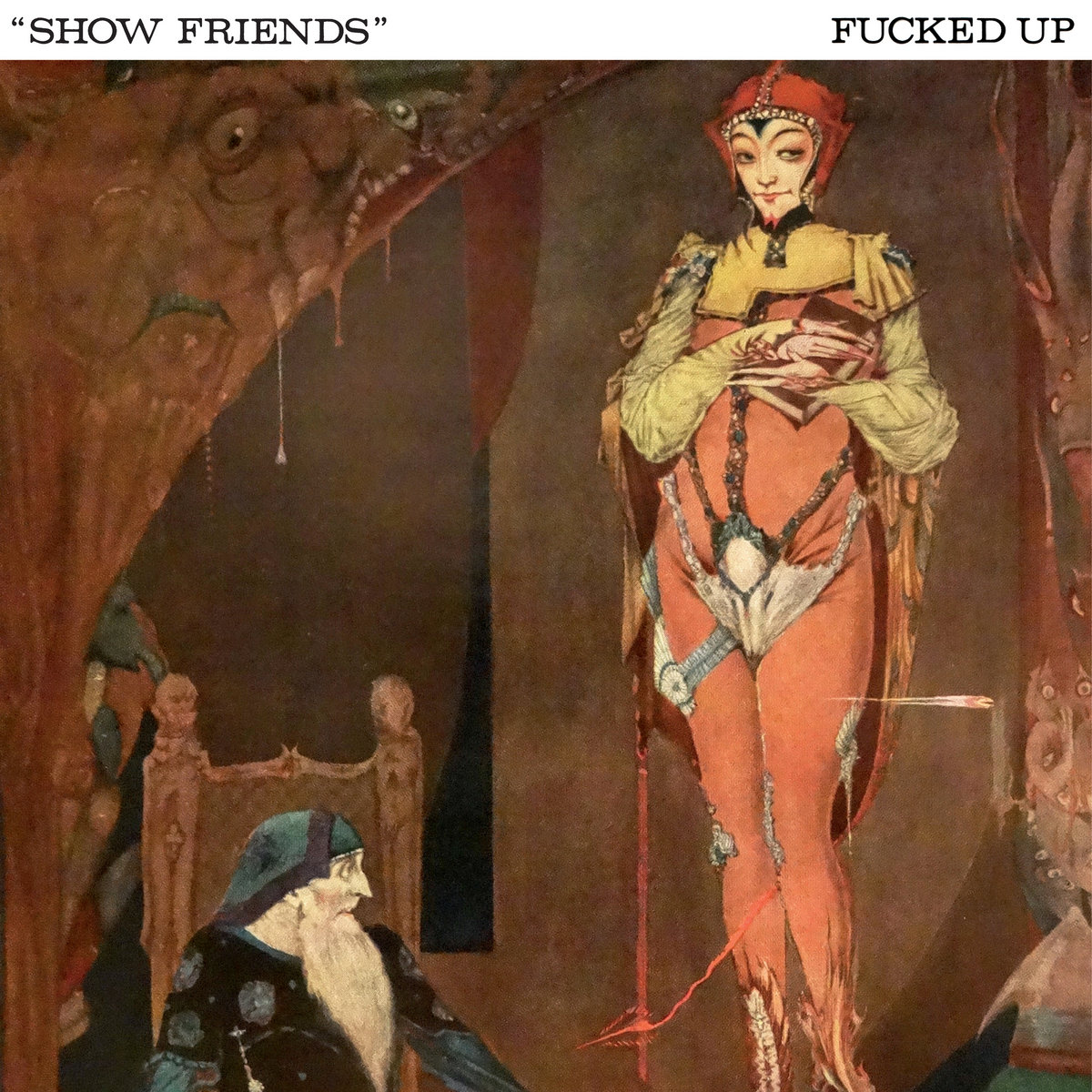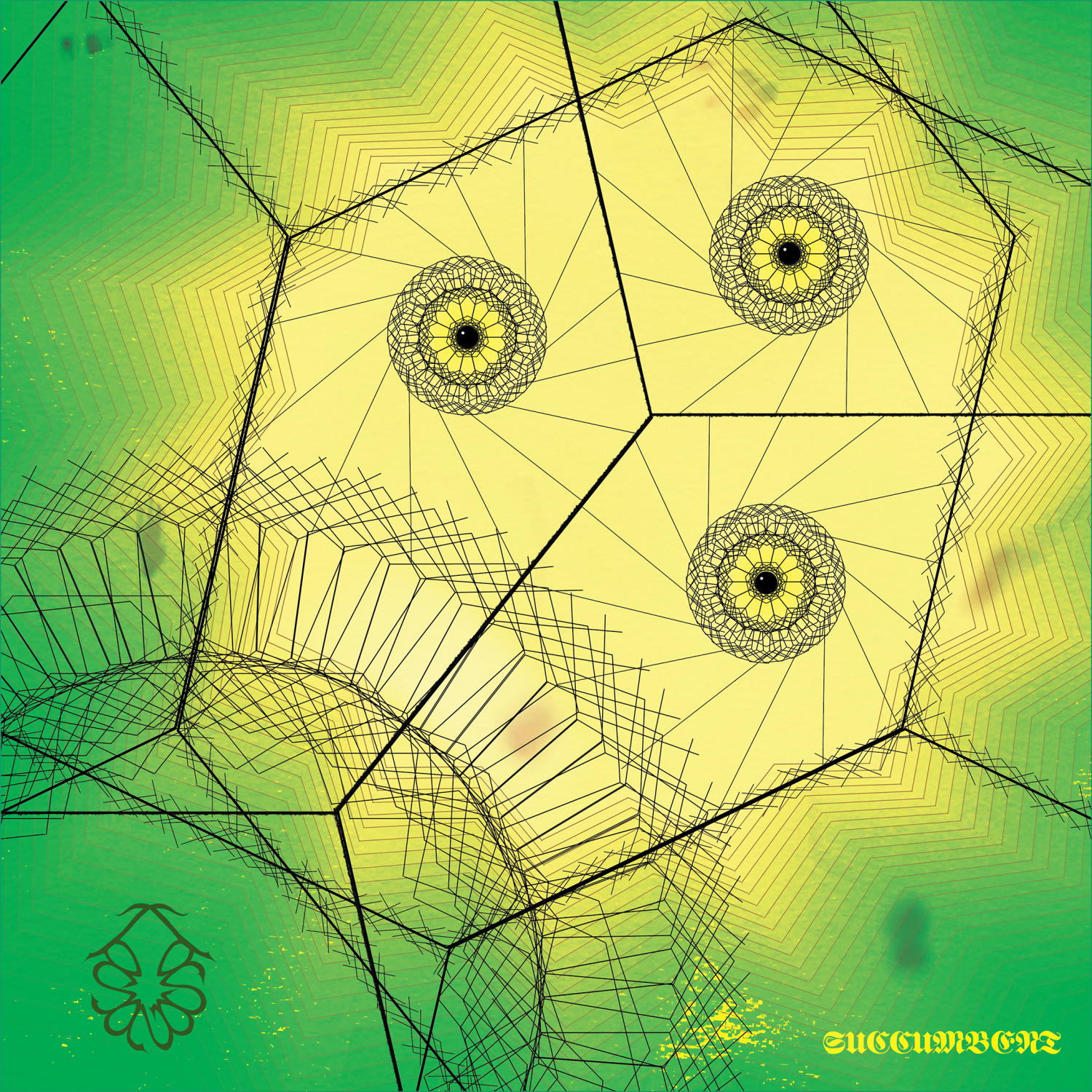It’s hard to say just what a bassoon power trio should include, maybe hurdy-gurdy and viol de gamba. Brooklyn’s Bassoon’s got none of that, though. The heavy prog-metal Brooklyn band put out their debut in 2012 and somehow only now have decided to follow it up with Succumbent (Nov. 17, Nefarious Industries, CD and download). The band was formed in 2006 by guitarist Stuart Popejoy and Harvey Milk bassist Steve Tanner with a drum machine, but by the time of the first album (which actually included bassoonist Sara Schoenbeck on one track) had reconstituted as Popejoy on bass with guitarist Sean Moran and drummer John Mettam. They all have chops honed and sharpened on the NYC jazz scene, but they don’t let that get in their way. The new album blasts through a half dozen instrumentals in just over a half hour with pinpoint accuracy and pounding rhythms. They make complexity sound easy.
 Nonbinary punk anxiety. Way back in 1978, when punk meant guitars, back before genders were fluid and before a self-proclaimed “all-American Jewish lesbian folksinger” named Phranc was making ambiguous waves in identity certainty, somewhere on the periphery of the L.A. punk scene, was born a band called Nervous Gender. They were part of the city’s initial thrust of weirdo punk, the initial DIY freak-flag wavers that generally precedes the punk conformity to prescribed notions of nonconformity. Phranc, in fact, was an early member. Later members in the band’s early history included Paul Roessler (who went on to play with Nina Hagen), Don Bolles (who later played with 45 Grave) and an 8-year-old drummer named Sven Pfeiffer. In 1981, Nervous Gender released their first album, Music From Hell, on Subterranean Records. On Halloween, 2023, that album got an expanded reissue (double LP, CD, download from Dark Entries Records), swollen to 31 tracks with added covers of songs originally by the Sex Pistols, Lou Reed and Carly Simon. There’s nothing comfortable about Music From Hell. The music at times can be quirky and camp, almost with a show-tune sensibility. At other times, it can recall early, creepy DEVO or the atonality of fellow Los Angelenos Flipper. But song titles like “Regress for You,” “Exorcism” and “Bathroom Sluts” make clear that there’s little cute about it. Nervous Gender sang about depravity, maybe their own but more so society’s. It’s not for everyone, but they were early proponents of queercore and electropunk and are still active under the name “Nervous Gender Reloded.” It’s good to have them back on the map.
Nonbinary punk anxiety. Way back in 1978, when punk meant guitars, back before genders were fluid and before a self-proclaimed “all-American Jewish lesbian folksinger” named Phranc was making ambiguous waves in identity certainty, somewhere on the periphery of the L.A. punk scene, was born a band called Nervous Gender. They were part of the city’s initial thrust of weirdo punk, the initial DIY freak-flag wavers that generally precedes the punk conformity to prescribed notions of nonconformity. Phranc, in fact, was an early member. Later members in the band’s early history included Paul Roessler (who went on to play with Nina Hagen), Don Bolles (who later played with 45 Grave) and an 8-year-old drummer named Sven Pfeiffer. In 1981, Nervous Gender released their first album, Music From Hell, on Subterranean Records. On Halloween, 2023, that album got an expanded reissue (double LP, CD, download from Dark Entries Records), swollen to 31 tracks with added covers of songs originally by the Sex Pistols, Lou Reed and Carly Simon. There’s nothing comfortable about Music From Hell. The music at times can be quirky and camp, almost with a show-tune sensibility. At other times, it can recall early, creepy DEVO or the atonality of fellow Los Angelenos Flipper. But song titles like “Regress for You,” “Exorcism” and “Bathroom Sluts” make clear that there’s little cute about it. Nervous Gender sang about depravity, maybe their own but more so society’s. It’s not for everyone, but they were early proponents of queercore and electropunk and are still active under the name “Nervous Gender Reloded.” It’s good to have them back on the map.
 Recrease, remodel. Montrealer Kee Avil’s 2022 debut Crease was all over the place in the best of ways. It was a fascinating record, intimate but expansive, sort of electro-postpunk with a PJ Harvey vibe. She’s promising a follow-up for 2024, but as a holdover has released a remix EP (Nov. 15, Crease Remixed, Constellation Records, download and streaming) that’s as surprising as was the full-length. The four tracks seem to strip the songs from the songs while keeping the sentiments in place. The strongest are Ami Dang’s reworking of “And I” and Claire Rousay’s dreamy “I, too, bury,” both ethereal settings that only hint at the originals. The EP is more pastime than essential listening, but it’s a good reminder or a better excuse if you missed Crease the first time around.
Recrease, remodel. Montrealer Kee Avil’s 2022 debut Crease was all over the place in the best of ways. It was a fascinating record, intimate but expansive, sort of electro-postpunk with a PJ Harvey vibe. She’s promising a follow-up for 2024, but as a holdover has released a remix EP (Nov. 15, Crease Remixed, Constellation Records, download and streaming) that’s as surprising as was the full-length. The four tracks seem to strip the songs from the songs while keeping the sentiments in place. The strongest are Ami Dang’s reworking of “And I” and Claire Rousay’s dreamy “I, too, bury,” both ethereal settings that only hint at the originals. The EP is more pastime than essential listening, but it’s a good reminder or a better excuse if you missed Crease the first time around.
 Effed again. Toronto’s Fucked Up keeps rolling out the hardcore microdoses. With three songs totaling 10 minutes, the new Show Friends (Nov. 7, self-released, digital and streaming) shows them at one of their most likeable influence states, a mix of early Who and Hūsker Dū, taut and a little more complicated than it needed to be. The third track, “What the Sun Saw,” is a glorious piece of reverberation and repetition, recalling the earliest days of psychedelic rock. I’m still waiting for the next in their epic Zodiac series, but in the meantime, I’ll take every morsel they decide to drop.
Effed again. Toronto’s Fucked Up keeps rolling out the hardcore microdoses. With three songs totaling 10 minutes, the new Show Friends (Nov. 7, self-released, digital and streaming) shows them at one of their most likeable influence states, a mix of early Who and Hūsker Dū, taut and a little more complicated than it needed to be. The third track, “What the Sun Saw,” is a glorious piece of reverberation and repetition, recalling the earliest days of psychedelic rock. I’m still waiting for the next in their epic Zodiac series, but in the meantime, I’ll take every morsel they decide to drop.
Dolly can do what she wants. Her version of a rock star is full of bombast and that’s what she wanted. She didn’t call the album Rock Singer, after all. She’s shooting for the arenas. Dolly Parton loves a good costume and for Rockstar (Nov. 17, Butterfly/Big Machine, 2CD, 4LP, download) she’s all gussied up like a can of Rockstar energy drink. Her own “World on Fire” is an affective example and a high point of the album of mostly classic rock covers that come off as rote, amped-up exercises. Her “(I Can’t Get No) Satisfaction” (with Pink and Brandi Carlisle) means little in a world where we can still look up the cover Björk and PJ Harvey did at the BRIT Awards in 1994. And her version of REO Speedwagon’s “Keep on Loving You” (with REO singer Kevin Cronin guesting) can’t hold a candle to the cover of Foreigner’s “I Want to Know What Love Is” by the Peruvian band Thank the Lord for Satan that hit streaming services at the end of November. But it’s her album, and if she wants to interpolate “I Will Always Love You” on two different tracks, she can damn well do so. Parton playing dress-up games immediately pales against Parton being sincere. She also does a version of “Stairway to Heaven,” joined by Lizzo, but the version she included on her 2002 album Halos & Horns was better by a mile because she was doing the song, rather than copping the style. If it gives her more money to buy books for kids, support AIDS, COVID and cancer efforts and protect animals, then by all means. I’m not sure it deserves to be the highest charting album to date, though. Halos & Horns and the other two folk/bluegrass albums she did for Sugar Hill around the turn of the century are all available on streaming services. That’s where she’s the real star.










